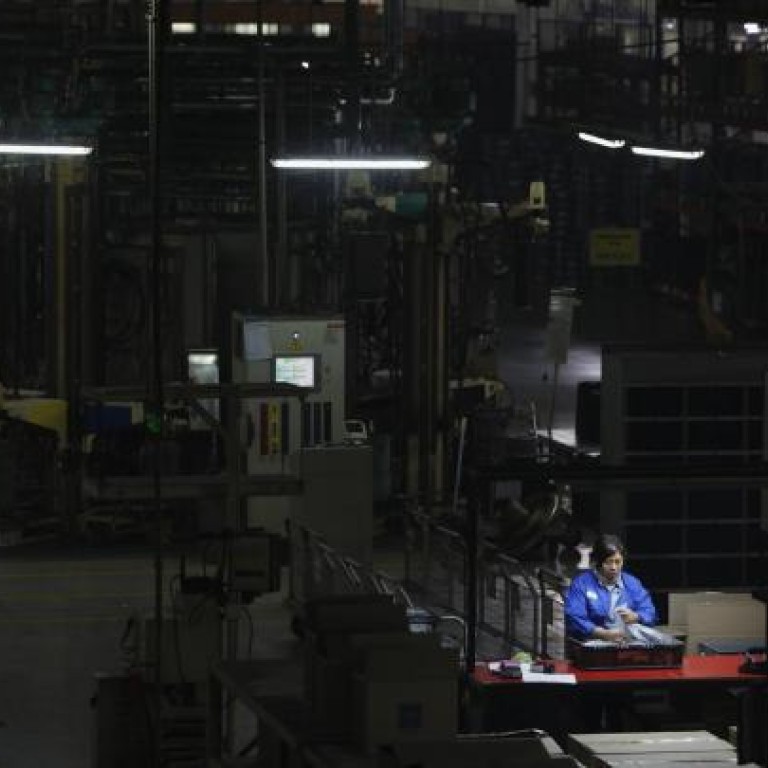
Beijing urged to boost productivity to encourage economic growth
Official calls for less dependence on investments to encourage growth
The mainland should foster economic growth through improving productivity and becoming less reliant on capital investments to fuel expansion, which is a recipe for inflation and the creation of asset price bubbles, an official warned at the weekend.

Cai said annual potential economic growth would slow to 7.2 per cent over the 12th five-year plan to 2015 as the labour surplus in the nation vanished. But real annual gross domestic product growth would still be higher at an estimated 7.7 per cent.
He was talking at a financial forum in Sanya, Hainan, that was hosted by .
"We hope that GDP growth for next year will be maintained at this year's level," Cai said, adding that if it were to accelerate against a background of slowing potential economic growth, this would point to "artificial measures" driving the growth.
"Such an artificial stimulus will result in overcapacity and inflation, as well as creating the risk of an asset price bubble," he said.
Cai said the annual potential economic growth rate would drop further to 6.1 per cent during the next five-year plan period as the labour force aged between 15 and 59 continued to decrease.
Rather than depending on investments to drive growth, the mainland should foster economic expansion through increasing total-factor productivity (TFP), a gauge of the efficient use of resources in an economy.
The mainland's total-factor productivity was much lower than that of developed countries because of a lack of measures to allow inefficient enterprises to exit, Cai said.
"Some inefficient enterprises are unable or unwilling to exit, while some can't find their way to enter an industry," he said.
The TFP among enterprises in the same industry was varied, he said. "If we can reduce the differences in TFP as the developed countries do, the TFP could be increased by 30 to 50 per cent," he said, and technology and innovation would help achieve this target.
